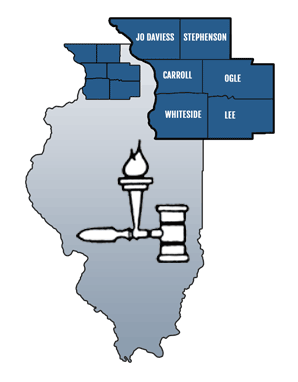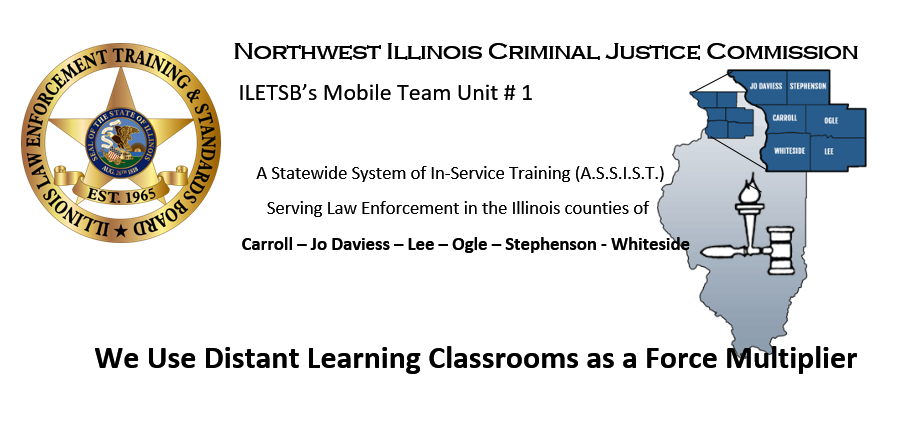Arrest, Search & Seizure: Constitutional Issues Impacting Law Enforcement
Ends On: Wednesday, October 16, 2024
Registration Deadline: Tuesday, October 1, 2024
Time: 8:00 AM - 5:00 PM
Dixon Police Department
Dixon, IL
Legal & Liability Risk Management Institute
Members' Fee: $0
Sworn Non-Members' Fee: $0
Non-Members' Fee: $0
DOWNLOAD FILE
This course has been approved by ILETSB to meet the following mandates:
Civil Rights 1 Hour
Constitutional/Proper use of Authority 7.5 Hours
Human Rights 1 Hour
Legal Updates 3 Hours
Procedural Justice 1.5 Hours
Law enforcement agencies throughout the United States have invested resources in certifying officers to train their employees in a variety of skills. While these skills are essential to the law enforcement function, a primary component of the law enforcement function is the ability to make sound legal decisions on when the skills may be employed.
The legal issues to be addressed by this course impact law enforcement in a variety of ways. First, the manner in which an officer conducts police operations may impact the prosecution of offenders. Additionally, the professionalism and credibility of officers and agencies will be scrutinized and challenged where cases are lost due to a technical failure by officers to follow the ever-changing legal principles. Finally, officers and agencies may face exposure to civil liability where there has been some deviation from the constitutional rules.
The purpose of this course is to update officers and supervisors on the foundational legal skills related to the critical legal tasks in law enforcement.
Street Encounters: This session will focus on the task of street encounters. Participants will be presented with the distinctions between consensual contacts, reasonable suspicion based stops and arrests and probable cause based arrests.
Stop and Frisk: This session examines the principles of stop and frisk and provides participants with the current legal framework established by the United States Supreme Court. Participants will assist in developing hypothetical scenarios involving credible as well as anonymous information in order to set out distinctions that have developed in the law. Close attention will be given to the concept of reasonable suspicion as a necessary component of a lawful stop.
Arrest: This segment focuses on the concept of probable cause and arrest. Participants will examine the distinctions between arrests in public places versus arrests in autos and residences.
Use of Force In Stops and Arrests: Officers must have a clear understanding of use of force when making stops and when carrying out arrests. The law in this area is rapidly developing and participants will examine the legal trends throughout the United States and be provided with case examples.
Strip Searches: A continuing issue in law enforcement involves when a strip search may be conducted and what constitutes a reasonable strip search in terms of the manner in which it is conducted once authorized. This session focuses on these issues and provides participants with a clear understanding of these principles.
Property Seizure: Officers come into contact with the property of citizens in a variety of contexts. This session examines the propriety of officer involvement in the seizure of property by others, the seizure of property during investigations as well as the proper manner of disposition of property. Participants will be asked to examine hypothetical law enforcement encounters which are routine in the profession in order to reach conclusions as to the appropriate legal response.
Home Entries: This lengthy session will examine the various legal mechanisms that officers have for entering private dwellings and other private property. The participants will be provided with a clear understanding with the differing rules related to each type of entry. Topics include search warrants; arrest warrants; crime scenes; exigent entry; consensual entry; plain view in a home; protective sweeps and search incident to arrest in a home; third party rights to privacy; knock versus no-knock entries as well as many other issues relating to home entries.
Plain View: Quite often, when officers are lawfully present in an area protected by the 4th Amendment, they observe items that they recognize as evidence or contraband. Officers faced with these circumstances may seize these items without a warrant. This exception is regularly used by officers; however, it is often misunderstood. This section utilizes practical exercise that can be duplicated to provide updated training on this important topic.
Motor Vehicle Searches: A major recurring task in law enforcement is contact with motor vehicles. This session examines the variety of contexts that officers come into contact with motor vehicles and examines the various rules governing each of these contexts. The session includes: ordering occupants out; reasonable suspicions based motor vehicle searches; probable causes searches of motor vehicle; search incident to arrest in a motor vehicle; consent searches; canine sniffs of motor vehicles; inventory searches of motor vehicles and community-care-taking searches of motor vehicles. Participants will be provided with a vehicle search sheet that crystallizes and distinguishes the rules covering the various motor vehicle contacts.
Identification Procedures: Once suspects are apprehended officers may be called upon to construct an identification proceeding. These proceedings include“ on-scene show-ups,” photo-arrays; and line-ups. The key to these identification proceedings is those officers insure that they are not overly suggestive. This session focuses on the rules governing these procedures that have a dramatic impact on the prosecution of cases.
Questioning and Miranda: An area of law enforcement that is continuing top develop is the use of Miranda warnings during questioning. The United States Supreme Court has examined a number of Miranda-related cases in the last two years. Participants will examine the foundation of the Miranda rule and then focus on how recent decisions impact current operations.
Partial funding provided by Illinois Law Enforcement Training and Standards Board and MTU#1’s request for certification of this course has been approved by the Illinois Law Enforcement Training and Standards Board



